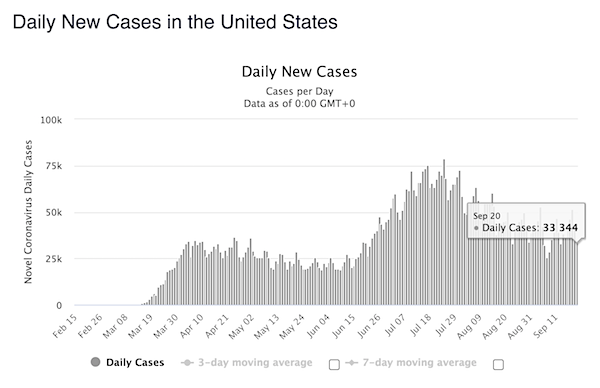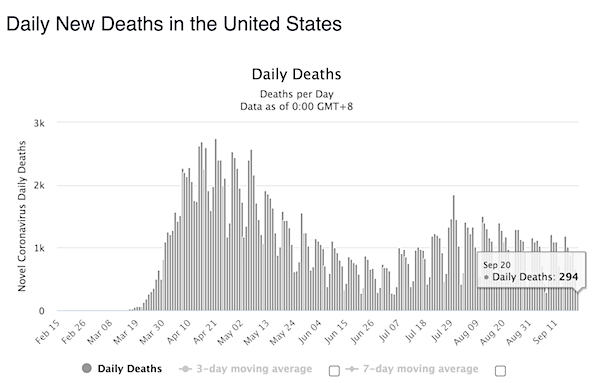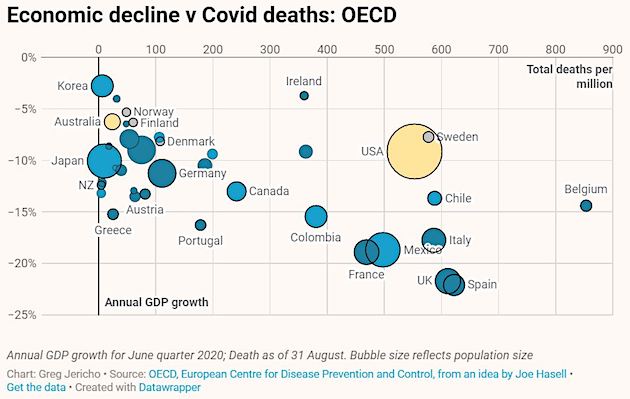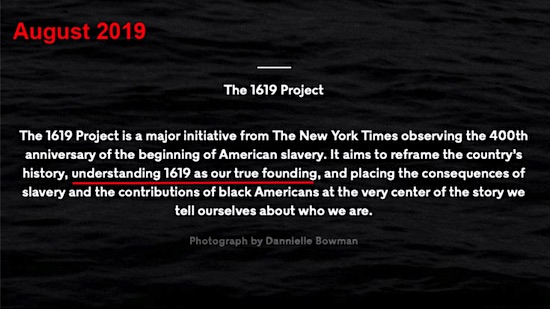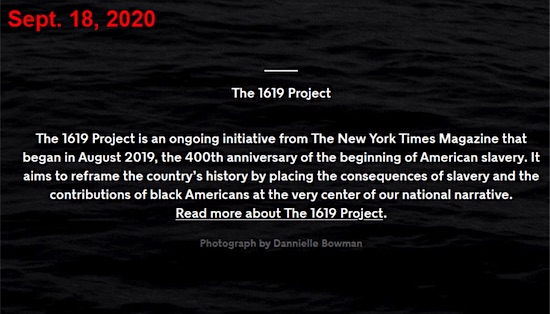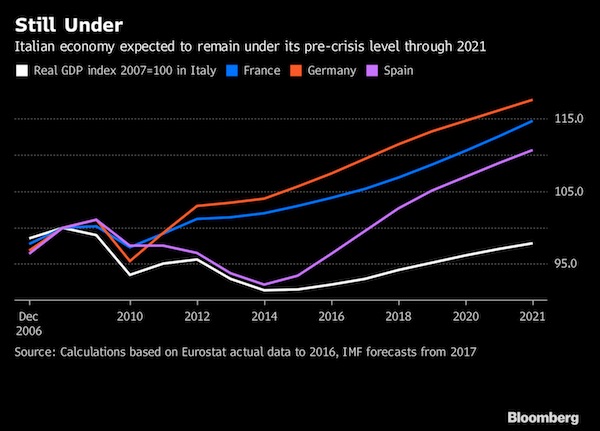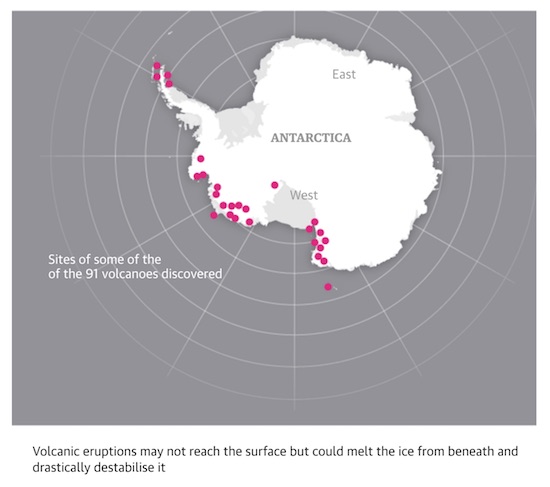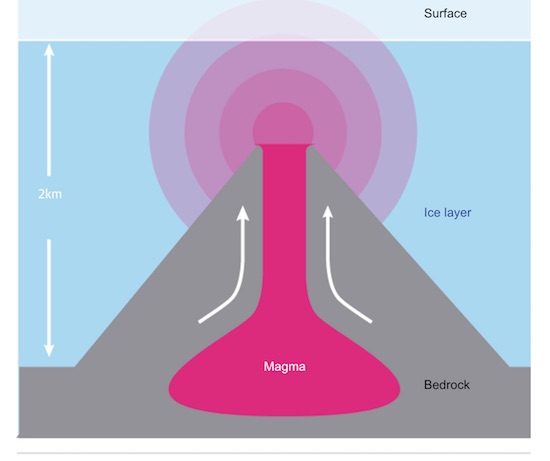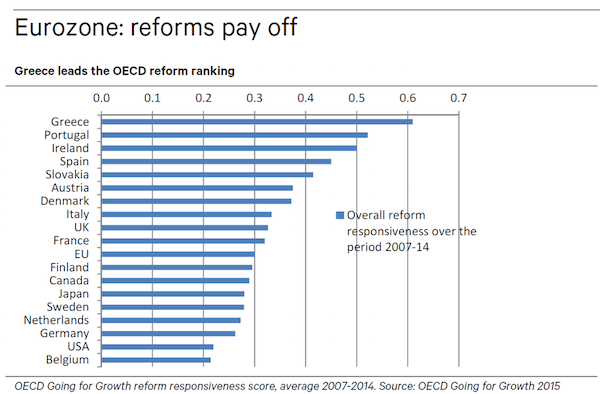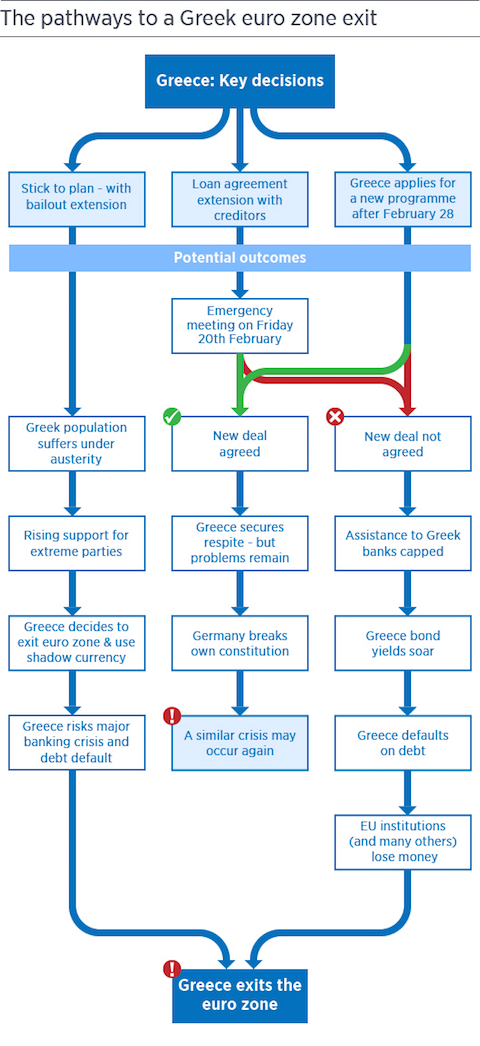
Joan Miro The tilled field 1924

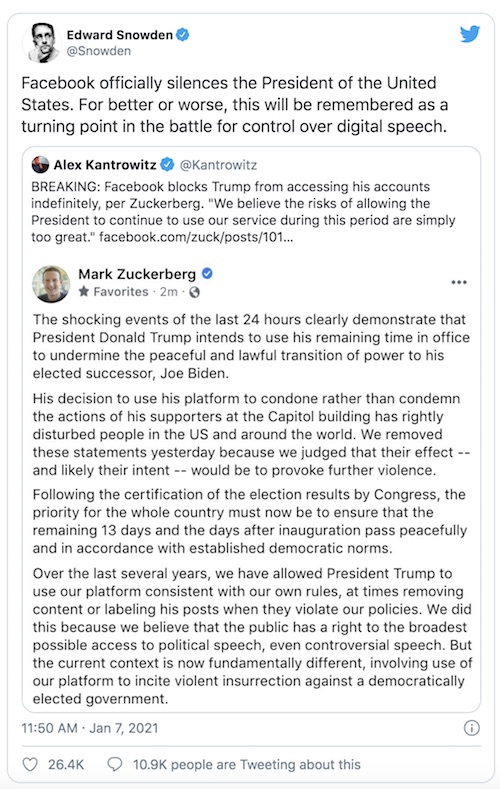

All I saw was a bunch of clowns.
• Only In Your Imagination Was That An Attempted “Coup” (Tracey)
We are being told that a “coup attempt” no longer needs to be understood as constituting an “attempt” to seize control of the government — as had generally been the common understanding of the term before the events of yesterday, which have caused the entire political and media establishment to go completely haywire Is it unusual for a mob to breach the Capitol Building — ransacking offices, taking goofy selfies, and disrupting the proceedings of Congress for a few hours? Yes, that’s unusual. But the idea that this was a real attempt at a “coup” — meaning an attempt to seize by force the reins of the most powerful state in world history — is so preposterous that you really have to be a special kind of deluded in order to believe it.
Or if not deluded, you have to believe that using such terminology serves some other political purpose. Such as, perhaps, imposing even more stringent censorship on social media, where the “coup” is reported to have been organized. Or inflicting punishment on the man who is accused of “inciting” the coup, which you’ve spent four years desperately craving to do anyway. He’s already been effectively banned from Facebook, Instagram, and Twitter — a rubicon-crossing event in the suppression of political speech which, of course, is being cheered by all the usual suspects who otherwise claim to be stalwart defenders of enlightened liberal values. At no point yesterday was the American government at risk of being “overthrown,” as members of Congress have laughably suggested.
Per usual, our guardians of consensus can’t bring themselves to describe what unfolded with any degree of dispassion or calm. Instead we’re told by the incoming Senate Majority Leader, for example, that January 6, 2021 will now “live in infamy” right alongside December 7, 1941. Elected officials issued emotional notices that they were “okay,” like they had just narrowly avoided being crushed in an earthquake, or escaped the World Trade Center on 9/11. This is made all the more odd because the only person upon whom lethal force was committed appears to have been a Trump-supporting woman who was shot point-blank in the throat by a Capitol Hill police officer. She’s now dead. Congress was temporarily inconvenienced.
Journalists and pundits, glorying in their natural state — which is to peddle as much free-flowing hysteria as possible — eagerly invoke all the same rhetoric that they’d abhor in other circumstances on civil libertarian grounds. “Domestic terrorism,” “insurrection,” and other such terms now being promoted by the corporate media will nicely advance the upcoming project of “making sure something like this never happens again.” Use your imagination as to what kind of remedial measures that will entail. Trump’s promotion of election fraud fantasies has been a disaster not just for him, but for his “movement” — such as it exists — and it’s obvious that a large segment of the population actively wants to be deceived about such matters.
But the notion that Trump has “incited” a violent insurrection is laughable. His speech Monday afternoon that preceded the march to the Capitol was another standard-fare Trump grievance fest, except without the humor that used to make them kind of entertaining. Trump didn’t command that his followers physically breach the Capitol Building. In fact, after previously saying he would join the march, he seems to just have gone home to tweet and watch TV. So, basically his normal routine on a typical day, minus a trip to the golf course.

“..striking at cherished national symbols — the World Trade Center, the Pentagon, the Capitol — ensures rage and terror far beyond body counts or other concrete harms.”
It’s about cliockbait, Glenn. Not reason.
• Violence in the Capitol, Dangers in the Aftermath (Greenwald)
The U.S. Capitol remains a potent and cherished symbol even for Americans who are deeply cynical about the ruling class and political system. Its nobility is something continually engrained deep into our collective psyche since childhood, and that meaning endures even when our rational faculties reject it. It is therefore not hard to understand why watching a marauding band of hooligans invade and deface both the House and the Senate, without any identifiable objective other than venting grievances, reflexively engenders a patriotic disgust across the political spectrum. It is unhinged to the point of being obscene to compare yesterday’s incursion to the 9/11 attack or (as Sen. Chuck Schumer did last night) to Pearl Harbor. By every metric, the magnitude and destructiveness of those two events are in an entirely different universe.
But that does not mean there are no applicable lessons to be drawn from those prior attacks. One is that striking at cherished national symbols — the World Trade Center, the Pentagon, the Capitol — ensures rage and terror far beyond body counts or other concrete harms. That is one major reason that yesterday’s event received far more attention and commentary, and will likely produce far greater consequences, than much deadlier incidents, such as the still-motive-unknown 2017 Las Vegas mass shooting that killed 59 or the 2016 Orlando shooting that left 49 dead at the Pulse nightclub. Unlike even horrific indiscriminate shooting sprees, an attack on a symbol of national power will be perceived as an attack on the state or even the society itself.
There are other, more important historical lessons to draw not only from the 9/11 attack but subsequent terrorism on U.S. soil. One is the importance of resisting the coercive framework that demands everyone choose one of two extremes: that the incident is either (a) insignificant or even justifiable, or (b) is an earth-shattering, radically transformative event that demands radical, transformative state responses. This reductive, binary framework is anti-intellectual and dangerous. One can condemn a particular act while resisting the attempt to inflate the dangers it poses. One can acknowledge the very real existence of a threat while also warning of the harms, often far greater, from proposed solutions.

“They’re not gonna stop. And everyone beware because they’re not gonna stop. They’re not gonna stop before Election Day and they’re not going to stop after Election Day. And everyone should take note of that. They’re not gonna let up and they should not.”
• Enough With The Outrage (PL)
Like pretty much all conservatives, I have consistently criticized riots and other forms of political violence for many years. That includes yesterday’s Washington, D.C. riot. You can’t say the same about liberals, however. Until yesterday, one might have thought that liberals consider rioting and other forms of political violence to be as American as apple pie. You could write a book in support of that proposition, but for now let’s cite just a few examples. Do you remember when President Trump was inaugurated on January 20, 2017? Leftist Democrats rioted in Washington that day. That riot was arguably worse, more violent and more destructive, than what happened in D.C. yesterday. The liberal rioters destroyed stores, set vehicles on fire and battled with the police. Six police officers were wounded.
I don’t recall a single Democratic office-holder denouncing the Democrats’ Inauguration Day riot, and the Associated Press came perilously close to praising the rioters. Over the ensuing four years, Antifa and Black Lives Matter rioted countless times, bringing devastation to cities like Portland, Seattle, Kenosha and Minneapolis. Did any Democrats denounce these riots? Not that I remember. Many Democrats endorsed them, or seemed to do so. Kamala Harris, for example, said about the riots in June: “They’re not going to stop. They’re not going to stop. This is a movement, I’m telling you. They’re not gonna stop. And everyone beware because they’re not gonna stop. They’re not gonna stop before Election Day and they’re not going to stop after Election Day. And everyone should take note of that. They’re not gonna let up and they should not.”
This was after 12 people had been killed in Democrat-sanctioned rioting, and billions of dollars in destruction committed. Have any Democrats denounced Black Lives Matter for its role in the riots? Not one. Has any Democrat denounced Antifa? Not that I know of, and some, like Keith Ellison, have specifically endorsed Antifa’s political violence. Democratic Party journalists have joined the party’s politicians in excusing riots. The New York Times, for example, published an admiring profile of Antifa. The Washington Post, likewise, has carried water for Antifa. The litany could go on for a long time. Yesterday’s assault on the Capitol was outrageous, but let’s not forget that last time out-of-control demonstrators interrupted business at the Capitol, shouted down senators and pounded on the doors of the Supreme Court, it was Democrats objecting to the nomination of Brett Kavanaugh to the Supreme Court.
And speaking of assaults on capitols, did any Democrats object when leftists occupied the Wisconsin Capitol in Madison for four months, destroying property, impeding public business and violently assaulting conservatives? Not a peep.


Are we going to celebrate corporate power in politics now? Are we inviting censorship in through the front door?
• Facebook, Twitter Finally Do Slightly More Than Nothing About Trump (IC)
The advertising industry is generally acknowledged as one of the most risk-averse and craven industries on the planet, with decision-making guided largely by attempting to be as inoffensive as possible to as many people as possible, taking a position on an issue only in the weakest, safest, most carefully hedged terms available. Though companies like Facebook and Twitter hold the unfathomable power to control the distribution of information to billions of people around the world and like to think of themselves as helping bring humankind to some next level of consciousness, they are still very much in the advertising business.
As advertising companies, cowardice runs deep in the souls of Twitter, Facebook, and Google, companies that have spent the past four years looking the other way, equivocating, and contorting themselves into pretzels in an attempt to justify Trump’s unfettered access to the most powerful information distribution system in world history. Despite perennial speculation in the press as to what might psychologically or ideologically explain Mark Zuckerberg and Jack Dorsey’s total unwillingness to meaningfully act, there is just one factor: money. Twitter and Facebook are only worth anything as businesses if they can boast to advertisers of their access to an enormous swath of the American market, across political and ideological lines, and fear of a right-wing backlash has been enough to keep Peter Thiel on Facebook’s board and Trump’s voter suppression dispatches on Twitter’s servers.
According to a Facebook moderator who spoke to The Intercept on the condition of anonymity for fear of employer retaliation, watching the company drag its feet, yesterday in particular, has been excruciating. According to internal communications reviewed by The Intercept, the Capitol break-in is now considered, for purposes of Facebook’s willy-nilly application of the rules, “a violating event,” and any “praise,” “support,” or even friendly “representation” is banned on the basis of the company’s “Dangerous Organizations” policies, which this moderator explained is typically applied to posts celebrating terrorist attacks, drug cartel murders, and Aryan street gangs.

Not sure what is going on with this.
• US Capitol Police Say Reports Of Officer Death Not Accurate (R.)
U.S. Capitol Police said in a statement on Thursday that media reports that an officer had died after the storming of the Capitol by supporters of President Donald Trump were inaccurate. The agency said that several officers were injured and some hospitalized after the unrest Wednesday, but that no officers had died as a result. Four people had died after Trump’s supporters swarmed the building on Wednesday in a failed attempt to disrupt efforts to certify President-elect Joe Biden’s victory.

“..he can rest easy knowing that he successfully used Trump as a vehicle to achieve the generations-long dream of the conservative donor class — a 6-3 majority on the Supreme Court..”
• Donald Trump’s Ruinous Legacy (Tracey)
The stultification of Republican electoral strategy stems fundamentally from the fact that there has been no substantial intra-party public debate about the reasons for Trump’s loss. Even now, more than two months later, to merely state that Trump lost provokes profound rage among a large segment of the party’s voters. You can be mercilessly attacked online and threatened with career-ending repudiation for doing so; Purdue and Loeffler couldn’t deviate from this line, for fear of alienating fraud-believing Trump supporters in Georgia. But Republican turnout dipped anyway, most probably because conservative media had been completely inundated with accusations that the Republican-led state government of Georgia was complicit in a conspiracy to oust Trump. It turns out “fraud-pilling” one’s own voters might not be the most reliable path to victory.
The manic Trump-induced obsession with purported fraud thereby delayed any thoroughgoing public discussion of how Congressional Republicans over-performed in November, across many metrics, even as Trump went down to defeat. So instead of capitalising on those gains, Republicans jettisoned them. As for McConnell, it was one of the more astounding moves in recent political history to sacrifice his own Senate majority, which most of his professional life has been structured around preserving at all costs, because he was dead-set against sending out the $2,000 cheques. A figure which in the grand scheme of things, as Trump would say, is “peanuts”.
But even with the majority vanquished, McConnell will maintain a fair amount of power as minority leader. As of 20 January the Senate will stand as split 50-50 with future Vice President Kamala Harris as the tie-breaking vote. The possibility of a few Democratic defections here and there means McConnell will have plenty of opportunities to exert legislative influence. And he can rest easy knowing that he successfully used Trump as a vehicle to achieve the generations-long dream of the conservative donor class — a 6-3 majority on the Supreme Court, as well as some corporate tax cuts.

Where is the next appeal? And when?
• The US and UK May Not Will Assange’s Death, But … (Cook)
[..] while denying the extradition claim, she supported all the arguments advanced by the US accruing to itself the right to prosecute Assange – and any other journalist – for the crime of doing journalism. She ignored the facts, the expert testimony presented in court and the legal arguments – all of which favoured Assange – and backed instead what amounted to a purely political case made by the US. She disregarded warnings from Assange’s legal team that acceptance of the political rationale for extradition amounted to an all-out attack on fundamental journalistic freedoms. She established a terrifying legal precedent for the US to seize foreign journalists and prosecute them for “espionage” if they expose Washington’s crimes. Her ruling will inevitably have a profoundly chilling effect on any publication trying to dig out the truth about the US national-security state, with terrifying consequences for us all.
But while she enthusiastically backed the political case for Assange’s extradition and trial, Baraitser at the same time got the Wikileaks founder off the hook by accepting the humanitarian concerns raised by medical and prison experts. They had counselled that extradition to the US could be expected to lead to Assange spending the rest of his life in a barbaric US super-max prison, exacerbating mental health problems and the risk of suicide. Her ruling, while deeply disturbing in its political and legal implications, did at least suggest that Baraitser was ready to take a compassionate approach in regard to Assange’s health, even if not his journalistic exposure of western war crimes. He should have walked free there and then, had the US not immediately said it would appeal her decision.
Given Assange’s discharge by Baraitser, his team hoped that bail – his release from a high-security prison while the lengthy appeals process unfolds – would prove a formality. They hurried to make such an application after the extradition ruling on Monday, assuming that the legal logic of her decision dictated his release. Baraitser demurred, suggesting that they prepare their case and make it to her more fully on Wednesday. It now seems clear the judge manipulated Assange’s defence team. Apparently like Assange’s lawyers, former British ambassador Craig Murray, who has attended and reported on the hearings in detail, was lulled by Baraitser into assuming that she wanted a cast-iron case from the defence to justify a decision to release Assange on bail.
There were good reasons for their confidence. Any move to prevent his release would look perverse given that she had decided Assange should not be extradited or stand trial in the US. They were deceived. Baraitser denied bail, effectively signalling that she thinks her ruling might be wrong and overturned in a higher court. That is extraordinary. It suggests that she has no confidence in her own judgment of the facts of the case. As Murray has noted: “There was little or no precedent for the High Court overturning any ruling against extradition on Section 91 health grounds.”

$4 trillion. Green.
• Biden’s One-Two Stimulus Punch (Axios)
Joe Biden is considering asking Congress to help suffering Americans in two steps: give them the balance of their coveted $2,000 coronavirus payments, followed by a $3 trillion tax and infrastructure package. Biden is confident he can get multiple packages through Congress after Democrats won both Georgia Senate elections. The president-elect’s team also wants to get cash in Americans’ hands as quickly as possible, according to people familiar with the matter. In July Biden rolled out his Build Back Better plan, which includes billions of dollars for caregivers, incentives for manufacturers and some $4 trillion for green jobs and infrastructure spending.
He proposed paying for this plan with a series of tax increases on the wealthy, including taxing capital gains as regular income and increasing the marginal tax rate for top earners to almost 40%. Democrats are concerned that if they miss early opportunities to combat COVID and reverse its broader effect on the economy, the twin problems could cripple the rest of Biden’s presidency. The first bite would come in the form of $1,400 payments that would be added to the $600 in cash Congress approved last month. Also included in this quick-hit package would be money for state and local aid, as well as funding for vaccine distribution. Biden’s push for a tax and infrastructure plan, which is part of his “Build Back Better” program, will slide to later in the spring and be considered under budget reconciliation rules.
They allow the Senate to pass measures with a simple majority, instead of a more challenging filibuster-proof 60 votes. Biden is essentially dusting off his pre-election plans, back when many of his economic and political advisers assumed that if he won the presidency, he would carry the Senate along with him. Those ambitions were thrown into doubt when Republicans ran strong in the Senate on Election Day and Democrats’ only hope for regaining the majority was if they won the two uphill runoff elections held Tuesday. Biden’s blitz for a quick spending measure could allow him to build goodwill with Senate Republicans for a bigger package in the spring, especially if it includes liability protection the GOP wants for businesses fearing coronavirus lawsuits.

Britain is brutal. How much of the healthcare system has been budgeted away in the past 20 years?
• There Are So Many Covid Patients, Younger This Time (Anon)
Truly, I never imagined it would be this bad. Once again Covid has spread out along the hospital, the disease greedily taking over ward after ward. Surgical, paediatric, obstetric, orthopaedic; this virus does not discriminate between specialities. Outbreaks bloom even in our “clean” areas and the disease is even more ferociously infectious. Although our local tests do not differentiate strains, I presume this is the new variant. The patients are younger this time around too, and there are so many of them. They are sick. We are full. There can be no debate: this is much, much worse than the first surge. We start the morning with 10 new patients to be concerned about. These are just the worst of them; we cannot worry about those who, though less unwell, would have had us scared in days gone by.
They are scattered on general wards around the hospital, being given as much oxygen as possible through a standard mask. Most are lying prone on their fronts, breathing rapid, shallow breaths, too breathless to talk, blood oxygen saturations alarmingly low. The eldest is in his 70s but most are much younger. All urgently need respiratory support. This is ideally given non-invasively using a Cpap mask or very high oxygen flows through the nose. Like most hospitals we have set up a new respiratory-led breathing support unit for this purpose, but it filled up with patients weeks ago. Our intensive care unit, able to deliver these therapies as well as invasive ventilation for the very sickest, is also full despite being stretched and pushed way beyond its previous capacity.
Our neighbouring hospitals are under the same pressures, or worse; even if patients were well enough to transfer out safely there is no space to receive them. We divide and conquer. Some of us rush through the morning ward rounds on the breathing support and intensive care units, desperately hoping to find patients that have improved enough to step down on to a normal ward or could be swapped between the two units according to their needs. Some of us go to assess the new referrals. We make sure that everything possible has been done to avoid the need for more support but our colleagues have already been thorough. They need to come to us, and soon. We initiate difficult conversations with some patients who were frailer before catching Covid and would therefore have less chance of benefit from additional breathing therapy.
We no longer have the luxury of “giving it a go”; we have to ensure that we select only those with the best chance of survival. Getting it wrong may occupy a precious high dependency bed for many days, often ending in a difficult and symptomatic death while preventing other patients from receiving the correct therapy. Conversely, identifying those who will not survive will allow us to ensure better symptom control and a kinder end to life. These conversations, often barely intelligible through our PPE, are draining, fraught, brutal. We must justify to patients and their families, and often our colleagues too, why we cannot offer these therapies to everyone.

All on red. Casino.
• Very Risky To Delay 2nd Dose Of COVID19 Vaccine – Former FDA Director (Hill)
Questions surrounding the deployment and quantity of available COVID-19 vaccine doses linger as inoculations continue, with vaccine reticence and concerns about dose availability dominating the conversation. For the current approved vaccines, two separate shots are required, and some European countries have opted to delay the administration of the second dose in a bid to cultivate broader immunity. Both Pfizer and Moderna’s vaccines require two shots administered intramuscularly roughly three weeks apart, which the U.S. is currently undertaking. As for whether or not the U.S. should follow the lead of countries like the U.K. and Denmark, Norman Baylor, former director of the U.S. Food and Drug Administration (FDA), called the plan “very risky” on CNBC.
“I understand some of the rationale to do this, but again, it’s not really data driven,” Baylor said. “It’s a very risky venture because if it fails, you’re in worse shape.” Baylor, who previously headed the FDA’s Center for Biologics Evaluation and Research, further elaborated that there isn’t enough data to fully illustrate the immunity benefits just one dose with a prolonged second dose will bring. While more people would receive a vaccination by increasing the time between when the administration of both doses, immunity may be different from what promising clinical trials suggest. “The concern though is that space, that time, and how vulnerable you are, because…we don’t have all the data in that will indicate what the duration of protection is,” Baylor said. “If it fails, you’re in worse shape.”
The need to vaccinate more people comes as a more contagious COVID-19 strain makes its rounds through countries including the U.K. and the U.S. The U.K. in particular has seen record new daily confirmed COVID-19 cases, with 403,914 new cases recorded over the past week, per national data. This represents a 42.6 percent increase.

In 3 years time.
• British Scientists Develop World’s First Covid-19 Vaccine Smart Patch (Unilad)
Scientists from Swansea University in Wales are striving to develop the first coronavirus vaccine ‘smart patch’. The patch will use microneedles to both administer the coronavirus vaccine and monitor its efficacy for the patient by tracking the body’s immune response. The research team plans to develop a prototype by the end of March, in the hope it can be put forward for clinical trials and ultimately released to the public, as part of the effort to tackle the coronavirus outbreak. Scientists at Swansea’s IMPACT research centre hope to carry out human clinical studies in partnership with Imperial College London with the aim of making the device commercially available within three years.
Using polycarbonate or silicon millimetre-long microneedles, the smart patch can penetrate the skin to administer a vaccine. It can be held in place with a strap or tape for up to 24 hours, during which time it simultaneously measures a patient’s inflammatory response to the vaccination by monitoring biomarkers in the skin. Once the vaccine has been administered, the device is scanned to produce a data reading that can provide an understanding about the efficacy of the vaccine and the body’s response to it.

What are the odds?
• Americans Need Federal Commission To Look Into The 2020 Election (Turley)
First, and most important, this was an unprecedented election in the reliance of mail-in voting and the use of new voting systems and procedures. We need to review how that worked down to the smallest precincts and hamlets. Second, possibly tens of millions of voters believe that this election was rigged and stolen. I am not one of them. However, the integrity of our elections depends on the faith of the electorate. Roughly 40% of that electorate have lingering doubts about whether their votes actually matter. Most of the cases challenging the election were not decided on the merits. Indeed, it seems they haven’t even been allowed for discovery. Instead, they were largely dismissed on jurisdictional or standing groups or under the “laches” doctrine that they were brought too late.
Those allegations need to be conclusively proven or disproven in the interests of the country. Third, there were problems. There was not proof of systemic fraud or irregularities, but there were problems of uncounted votes, loss of key custodial information and key differences in the rules governing voting and tabulations. We have spent billions to achieve greater security and reliability after prior election controversies. Indeed, we had a prior election commission that failed to achieve those fundamental goals. A real commission will take a couple years to fully address these allegations. It will be meaningless if it’s stacked by the same reliable political cutouts used historically in federal commissions. It should be formed on a commitment of absolute transparency with public hearings and public archiving of underlying material before the issuance of any final report. That way, the public at large can analyze and contribute to the review of this evidence.
[..] The main challenge, however, remains the same: Whether Congress can appoint a real federal commission without rigging the result by appointing partisan members. In 1877, to quote from a speech of Ohio Sen. Allen Granberry Thurman, “It was perfectly clear that any bill that gave the least advantage, ay, the weight of the dust in the balance, to either party, could not become the law of the land.” Nothing has changed. The stakes are too high to allow even a dust particle to tip the difference on the ultimate findings. The dust-free option requires a dependent, not independent, commission. Otherwise, the public will be the loser.

We try to run the Automatic Earth on donations. Since ad revenue has collapsed, you are now not just a reader, but an integral part of the process that builds this site.
Click at the top of the sidebars for Paypal and Patreon donations. Thank you for your support.

“Journalism is popular, but it is popular mainly as fiction. Life is one world, and life seen in the newspapers another.”
– G.K. Chesterton



Support the Automatic Earth in 2021. Click at the top of the sidebars to donate with Paypal and Patreon.




